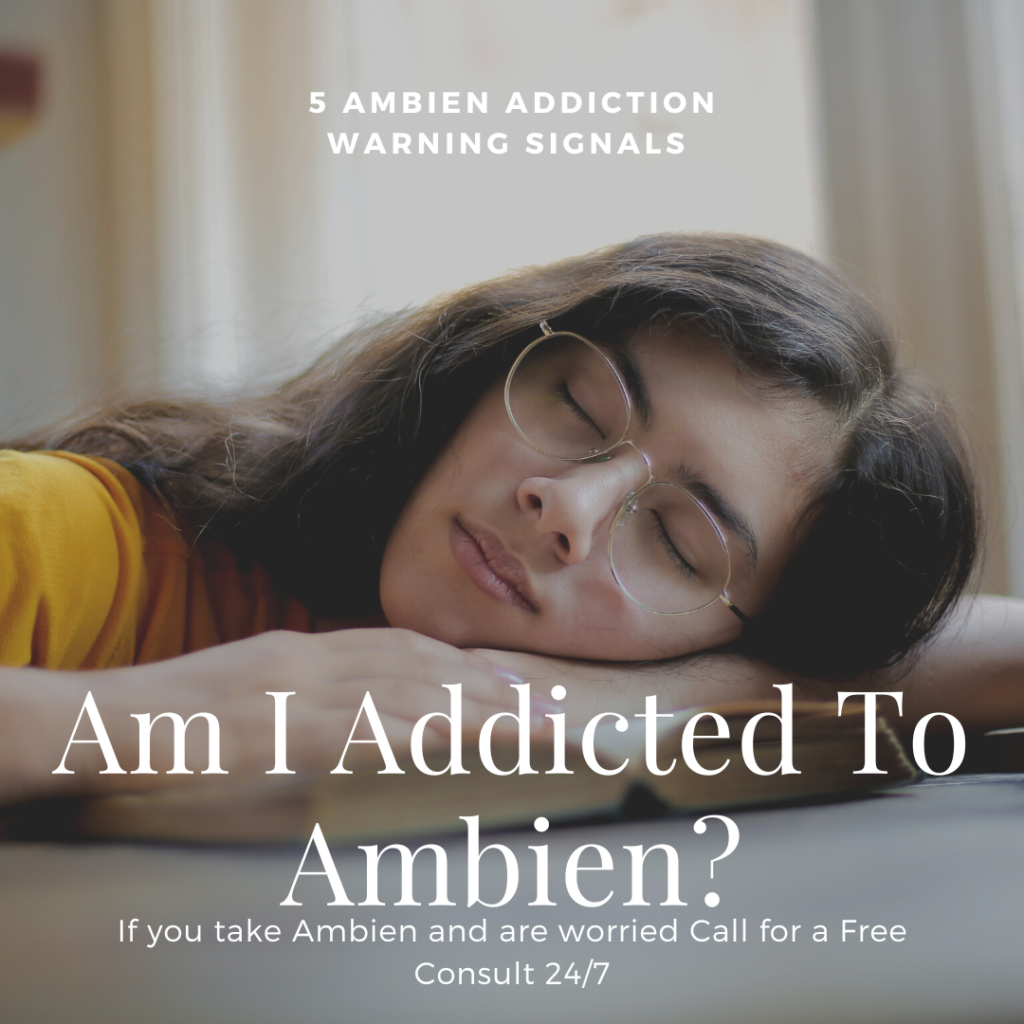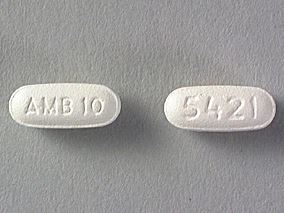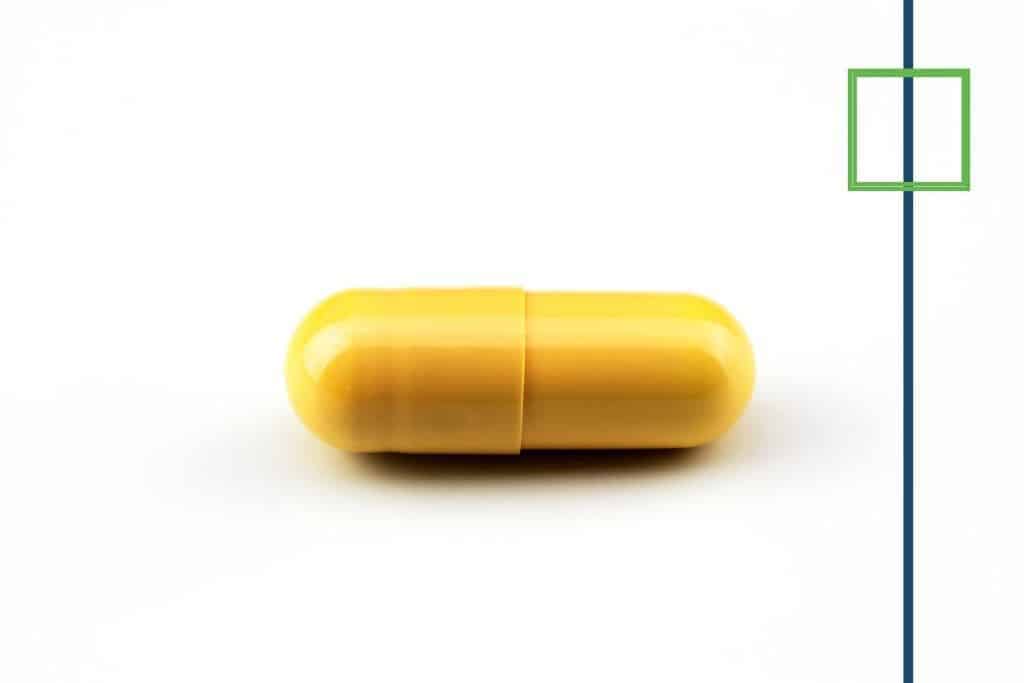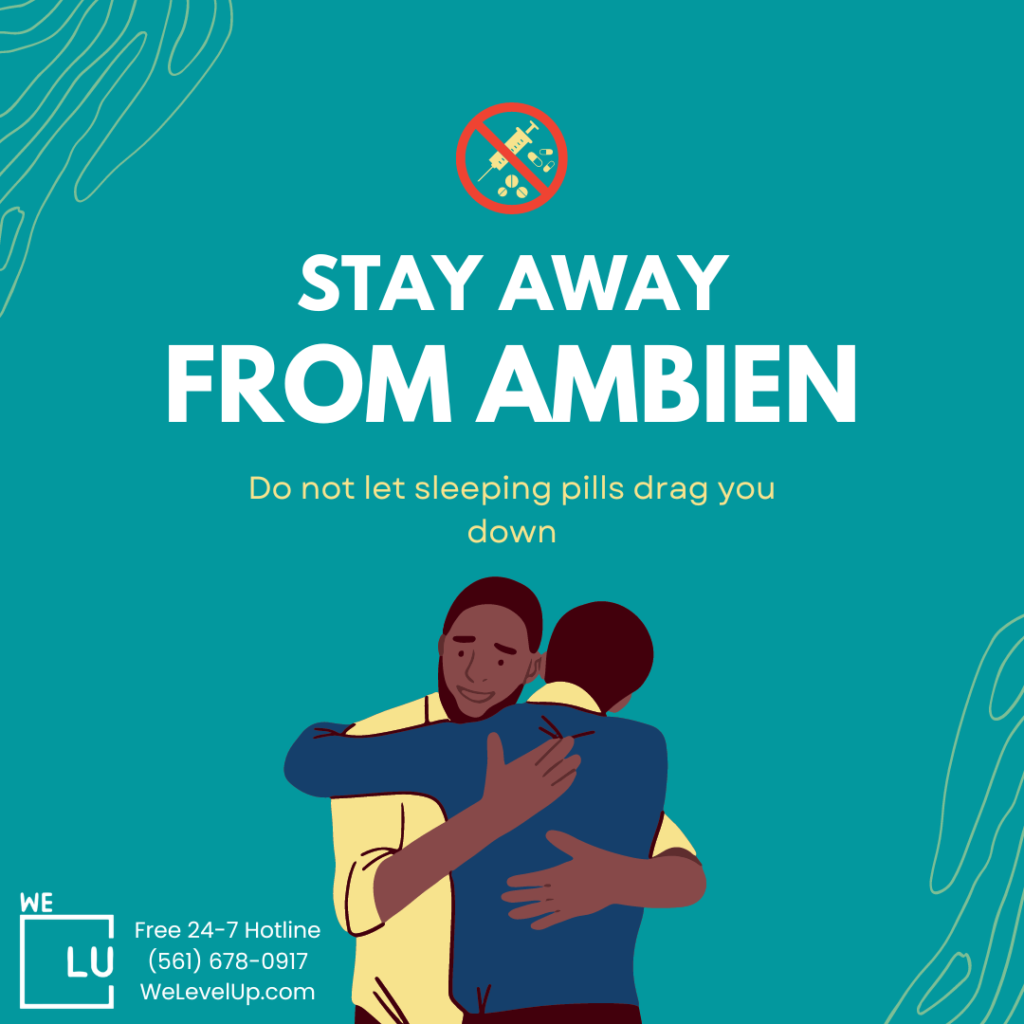Mixing Ambien and Alcohol
it could be tempting to mix Ambien and alcohol, but it’s generally not recommended, as the combination can be very dangerous and can cause many adverse reactions. Some of the potential risks include slowed breathing, heart problems, extreme drowsiness, memory loss, hallucinations, and even coma.
Combining Ambien and alcohol can lead to an increased risk of overdose due to their mingled effects. It can also lead to a higher risk of physical harm or death as the user may become less alert or conscious. Additionally, the combination of these two can significantly impair a user’s motor skills and coordination, making activities such as driving hazardous. For these reasons, it is strongly recommended to avoid mixing Ambien and alcohol altogether.
Dangers of Mixing Ambien And Alcohol
The combination of Ambien and alcohol can be quite harmful. Both of these medications are central nervous system depressants, which means they slow the body and brain down. When these drugs are combined, a person is at risk of a variety of dangerous and even deadly adverse effects.
What Is Ambien?
Ambien (Zolpidem) is a non-benzodiazepine receptor modulator primarily used in the FDA-approved short-term treatment of insomnia aimed at patients with difficulty starting sleep. It improves sleep latency and duration measures and reduces the number of awakenings in patients with transient insomnia. [1] It also improves sleep quality in patients with chronic insomnia and can act as a minor muscle relaxant. [2]
How is Ambien Abused?
Many people misuse Ambien by taking more than prescribed to help them sleep when they are tolerant of it. Others abuse it by taking it and purposefully staying awake. The drug produces a euphoric, out-of-body effect, accompanied by strange behavior and short-term memory loss. Ambien abuse side effects can damage a person’s health and lead to physical dependence and addiction. Ambien may be used as a sleep aid or a euphoric drug by people who take it and intentionally stay awake. Either form of abuse can lead to physical dependence and addiction and increase a person’s risk of overdose.
Ambien and Alcohol Interaction
Combining alcohol and Ambien can be dangerous. The side effects of combining these two substances include impaired judgment and coordination, difficulty breathing, and an increased risk of overdose.
Combining Ambien and alcohol can also cause a person to become very drowsy and confused. As a result, activities such as driving, operating machinery, and engaging in risky behavior should be avoided. Additionally, combining Ambien and alcohol can worsen the depressant effects of both substances, leading to further impairment. Lastly, alcohol can make it more difficult for the body to process the active ingredient of Ambien, zolpidem, leading to an increased risk of overdose and other adverse reactions.
It is important to avoid combining these two substances, as it can be dangerous and even fatal. SAMSHA recommends seeking treatment for individuals who are misusing any type of drug, including Ambien.
Zolpidem / Ambien Abuse Statistics
The World Health Organization (WHO) considered that the frequency of zolpidem abuse and dependence was similar to that of benzodiazepine; on 15 July 2002, zolpidem, the generic name of Ambien, was transferred to Schedule IV of the 1971 Convention (for drugs inducing dependence such as benzodiazepines). This convention aims to control both traffic and abuse of psychotropics. Prescribers should consider the possibility of Ambien addiction and withdrawal symptoms when starting patients on this drug. Without proper management, significant drug interactions may occur.
It is reported that more than 500, 000 people in the USA are abusing Ambien and other related Sedatives (pursuant to the National Survey on Drug Use and Health).
Can you Die from Ambien and Alcohol?
A combination of Ambien and alcohol can be deadly. Alcohol and Ambien’s effects become enhanced when taken together. Wherein the user can lose consciousness or suffer an extreme drop in alertness or motor coordination, increasing the risk of an overdose or fatal accident. Therefore, it is best to avoid mixing alcohol and Ambien altogether.

Skip To:
- What Is Ambien? Dangers of Mixing Ambien And Alcohol.
- How is Ambien Abused?
- Ambien and Alcohol Abuse Statistics
- Ambien Drug Facts
- Mixing Ambien And Alcohol
- Ambien And Alcohol Interaction
- 5 Popular Ambien And Alcohol Frequently Asked Questions
- Ambien And Alcohol Side Effects
- Withdrawal Symptoms Of Ambien And Alcohol
- Ambien And Alcohol Blackout
- Ambien And Alcohol Liver Damage
- Ambien Liver Damage
- Ambien And Alcohol Overdose
- Treatment For Ambien And Alcohol
Learn More:
- Ambien Abuse Side Effects
- Ambien Withdrawal Timeline, Symptoms, How Long Does Ambien Withdrawal Last?
- Ambien Addiction Treatment
- Sedatives Addiction
- Alcohol Blackout
- Alcoholic Hepatitis
- Alcoholic Cirrhosis
- Alcohol Poisoning
- Drug Rehab & Detox
- Inpatient Addiction Rehab
- Cognitive Behavioral Therapy For Addiction
- Dual Diagnosis Treatment
- Medication Assisted Treatment Program
Several treatment options are effective for prescription drug abuse treatment. Encourage your friend or loved one to talk to their doctor or a treatment counselor about using alcohol treatment programs, substance abuse treatment, relapse prevention, or support groups as part of their recovery.
Get Help. Get Better. Get Your Life Back.
Searching for Accredited Drug and Alcohol Rehab Centers Near You?
Even if you have failed previously and relapsed, or are in the middle of a difficult crisis, we stand ready to support you. Our trusted behavioral health specialists will not give up on you. When you feel ready or just want someone to speak to about therapy alternatives to change your life call us. Even if we cannot assist you, we will lead you to wherever you can get support. There is no obligation. Call our hotline today.
(844) 597-1011Ambien and Alcohol Abuse Statistics
If you or someone you know has developed a substance use disorder, working on a plan for sobriety as soon as possible becomes crucial. An inpatient treatment program offers an opportunity to safely detox from Ambian and alcohol as a first step before individual and group therapy begins.
16.1 Million
5.8% (or about 16.1 million people) reported misusing any prescription psychotherapeutic drug in the past 12 months. Many people drink alcohol while using drugs to enhance or otherwise modify their experiences with these substances.
Source: NIDA
85,688
In 2019, of the 85,688 liver disease deaths among individuals ages 12 and older, 43.1% involved alcohol.
Source: NIDA
40%
About 40% of individuals who know they have an alcohol or drug problem are not ready to stop using, and many others simply feel they do not have a problem or a need for treatment.
Source: NIDA
Ambien Drug Facts
Also known as Zolpidem
Pronunciation:am-bee-uhn
Generic Name: Zolpidem
Brand Names: Ambien, Ambien CR
Drug Class: Miscellaneous anxiolytics, sedatives, and hypnotics
Brands:
Edluar, Zolpimist, Intermezzo, Ambien CR, and Ambien
Availability:
Prescription
Pregnancy:
Consult a medical professional
Mixing With Alcohol:
Avoid. Very serious interactions can occur such as:
- Dizziness
- Confusion
- Trouble concentrating
- Coordination problems
- Impaired thinking and judgment
- Sleep apnea
- Drowsiness
- Decreased breathing
- Slowed heart rate
- Memory loss
- Sleepwalking
Mixing Alcohol and Ambien Warning
Combining alcohol and Ambien can increase the risk of experiencing certain side effects, including drowsiness, confusion, slowed breathing, impaired motor coordination, and increased risk of falls, accidents, and potentially deadly overdoses. Some people may also experience increased depression, suicidal thoughts, or other mental health issues when combining alcohol and Ambien.
Long-term use of Ambien combined with alcohol can cause lasting side effects, such as memory loss, mental health trouble, and physical health issues. The combination of these substances can also lead to decreased alertness and concentration, which can impair judgment and increase the risk of dangerous behavior or accidents. It’s especially important to talk to a doctor or pharmacist if you plan to drink or use Ambien or any medication.

Get Your Life Back
Find Hope & Recovery. Get Safe Comfortable Detox, Addiction Rehab & Dual Diagnosis High-Quality Care.
Hotline(844) 597-1011
Mixing Ambien And Alcohol
What are the effects of combining Ambien and alcohol high? Does drinking alcohol while taking Ambien cause an overdose? Ambien is a potent prescription drug with a high potential for abuse and addiction. This prescription drug can be habit-forming after only two weeks of use. Because of this, individuals have rarely prescribed Ambien for long-term use and are monitored closely by medical practitioners while taking the medication.
This form of sedative is identified as a hypnotic drug that comes in several formulations. The first is an immediate-release tablet that helps the person taking it to fall asleep right away. The second is an extended-release (Ambien CR). The outer layer dissolves fast to help the person fall asleep fast. The inside later dissolves more slowly and helps the person taking the medication to stay asleep.
You shouldn’t try to share your Ambien prescription with anyone else. Even if that individual suffers the same symptoms, giving them your Ambien may be dangerous. For instance, dosages for men are higher than they are for women. Children should never take this medication because they may suffer dangerous side effects. Your doctor has prescribed a formulation and dosage appropriate for you, not someone else.
One of the more significant issues in alcoholism treatment is when people combine alcohol with other substances, either on purpose or by accident, resulting in physical harm and, often, overdose. In many instances, individuals don’t understand that mixing prescription drugs with alcohol, such as Ambien, can cause a severe reaction in the body. In other situations, individuals who abuse drugs may mix alcohol and medication on purpose to experience euphoria or to self-treat physical conditions like anxiety or insomnia without checking with a doctor first to understand the risks.
Ambien And Alcohol Interaction
Drinking alcohol and Ambien can be deadly. The effects can create an overdose, where heart rate and breathing slow and potentially stop altogether. Drinking alcohol makes the drug’s central nervous system (CNS) effects even more potent. Common side effects, such as difficulty with concentration, dizziness, or sleepiness, are likely to worsen. Moreover, you may have difficulty thinking and making good judgment calls. Whether you combine Ambien and alcohol accidentally or intentionally, you may develop dangerous physical symptoms that can be life-threatening.
Because this prescription drug is a hypnotic sleep aid, it acts most strongly on your brain and spinal cord, depressing nerve activity. Alcohol is also a central nervous system (CNS) depressant, which slows down your heart rate, breathing, and ability to think clearly and make good decisions. By combining two CNS depressants, you’ll most likely multiply the effects of your medication if you mix it with alcohol.
First-class Facilities & Amenities
World-class High-Quality Addiction & Mental Health Rehabilitation Treatment
Rehab Centers TourRenowned Addiction Centers. Serene Private Facilities. Inpatient rehab programs vary.
Addiction Helpline(844) 597-1011Proven recovery success experience, backed by a Team w/ History of:
15+
Years of Unified Experience
100s
5-Star Reviews Across Our Centers
10K
Recovery Success Stories Across Our Network
- Low Patient to Therapist Ratio
- Onsite Medical Detox Center
- Comprehensive Dual-Diagnosis Treatment
- Complimentary Family & Alumni Programs
- Coaching, Recovery & Personal Development Events
5 Popular Ambien And Alcohol Frequently Asked Questions
-
Is It Safe To Take Ambien Every Day?
Ambien, like all sleep aids, is not meant to be a permanent fix or cure but rather for brief usage (usually no longer than two weeks). According to research, there may be a connection between the daily use of sleeping medicines like Ambien and higher mortality risk.
-
How Is Ambien Overdose Treated?
In the event of an overdose, seek emergency medical attention. If Ambien was taken in excess or combined with alcohol, the person may need to have their stomach pumped and receive intravenous fluids. Medical professionals will also need to keep a close eye on their respiration and pulse.
-
What Are The Additional Dangers Of Mixing Alcohol And Ambien?
With Ambien, reports of sleepwalking, food disorders associated with sleep, and sleep driving have all been made. Somnambulism, also known as sleepwalking and sleep driving, is a parasomnia characterized by a succession of intricate actions taken while asleep that cause one to walk, drive, or carry out another task while experiencing altered consciousness and poor judgment. Less than 1% of those who take Ambien are affected. However, when the recommended dose of Ambien is coupled with even a modest to moderate amount of alcohol or other sedative drugs, the risk of automatism (amnesia) and parasomnia increases.
In fact, the Food and Drug Administration (FDA) mandated stronger boxed warnings about the uncommon but serious incidents related to Ambien and other prescription insomnia medications that went into effect in 2019. This was because of the potential risks of Ambien alone and the increased risks of combining alcohol and Ambien. This followed an FDA examination of 66 incidents in which people taking Ambien and related drugs engaged in activities while not completely awake, leading to significant harm or death. Zolpidem is categorized as a Schedule II drug by the International Council on Alcohol, Drugs and Traffic Safety (ICADTS), which means that it has a similar effect on driving ability to that of 0.05–0.08% blood alcohol content (BAC).
-
Can You Die From Ambien And Alcohol?
The danger of Ambien overdose and, in rare cases, death is further increased when Ambien is combined with alcohol. Ambien has a fast-acting sedative effect, which makes it easy for someone to fall asleep.
-
What Are The Common Alcohol And Ambien Side Effects?
Potential physical side effects of Ambien and alcohol are dizziness, confusion, trouble concentrating, coordination problems, impaired thinking and judgment, sleep apnea, drowsiness, decreased breathing, slowed heart rate, memory loss, and sleepwalking.
Ambien Side Effects With Alcohol
How long after drinking can I take Ambien? Ambien after drinking alcohol is never safe at all since the hangover can last up to 24 hours. Ambien can negatively interact with several other substances. One of these dangerous interactions is with alcohol and Ambien. Ambien and alcohol can have several side effects and potentially dangerous interactions when combined. Alcohol can worsen the adverse side effects of Ambien, and once both substances have been ingested, it’s impossible to control the effects these drugs will have.
Potential physical side effects of mixing Ambien and alcohol include:
- Dizziness
- Confusion
- Trouble concentrating
- Coordination problems
- Impaired thinking and judgment
- Sleep apnea
- Drowsiness
- Decreased breathing
- Slowed heart rate
- Memory loss
- Sleepwalking
Taking Ambien alone can result in several side effects, especially if someone takes a higher dose than required. Medical professionals do not recommend taking Ambien unless one can get at least seven hours of sleep. Ambien can cause strong effects the following day after taking it. Individuals taking this medication and not getting enough sleep should not operate machinery or motor vehicles. Alcohol can exacerbate all of these side effects and more. People who mix Ambien and alcohol are more than twice as likely to require medical attention than those who only take Ambien.
Withdrawal Symptoms Of Ambien And Alcohol
People who take Ambien in doses higher than the prescribed amount are likely to become addicted to it and experience withdrawal symptoms when they stop using it. It can lead to permanent damage to the respiratory system and liver. This can also have long-lasting effects on the individual’s cognitive state.
Ambien withdrawal symptoms usually start within 48 hours after the last dose. They end within a week or two. It is also essential to know that Ambien’s withdrawal symptoms can be exasperated by the effects of other substances, like alcohol, if a person ingests it with Ambien. The symptoms of withdrawal may include:
- Insomnia
- Restlessness
- Cramps
- Nausea and vomiting
- Sweating
- Aches and pains
- Headache
- Severe anxiety
- Hyperventilation
- Racing pulse
- Severe nervousness
- Panic attacks
- Lightheadedness
- Speech difficulties
- Seizure
As mentioned above, Ambien was created for the short-term treatment of insomnia. It is not designed for long-term or chronic insomnia. Its sedative qualities may lead to rebound insomnia symptoms if the brain relies on this drug to coax it into sleep and relaxation. The psychological withdrawal symptoms, such as panic attacks and anxiety, could last longer than the physical withdrawal symptoms.
People experiencing acute alcohol withdrawal could experience severe withdrawal symptoms in the first few weeks after they stop drinking. At this point, the person is at the highest risk of developing delirium tremens (DTs), temporarily losing consciousness, or having seizures. All of these can be fatal if not treated by medical professionals.

World-class, Accredited, 5-Star Reviewed, Effective Addiction & Mental Health Programs. Complete Behavioral Health Inpatient Rehab, Detox plus Co-occuring Disorders Therapy.
CALL(844) 597-1011End the Addiction Pain. End the Emotional Rollercoaster. Get Your Life Back. Start Drug, Alcohol & Dual Diagnosis Mental Health Treatment Now. Get Free No-obligation Guidance by Substance Abuse Specialists Who Understand Addiction & Mental Health Recovery & Know How to Help.
Ambien And Alcohol Blackout
Despite the benefits for individuals suffering from insomnia, Ambien’s dangers can be significant or deadly. Quite often, there are cases dubbed “Ambien blackouts” that happen, and Ambien can cause a range of other adverse side effects.
Ambien blackouts can be very scary, but they’re not entirely uncommon with the use of this prescription drug. There are countless anecdotal reports of individuals doing everything from preparing meals to having sex while on Ambien, then having no memory of it the next day.
Sleepwalking (somnambulance) and sleep eating is also common when under the influence of Ambien. When users combine Ambien and alcohol, these risks are even more significant. The risk of an Ambien and alcohol blackout becomes especially dangerous when individuals do things like driving while on Ambien.
There have even been serious crimes committed during which people say they were using Ambien and claim to have no memory of what happened. The risk of an Ambien blackout is highest in people who take the drug and don’t go straight to bed.
Ambien And Alcohol Liver Damage
Mixing Ambien and alcohol can cause severe and permanent liver damage over time. It can also cause liver cancer, alcoholic hepatitis, and alcoholic cirrhosis. Ambien and alcohol abuse may lead to respiratory system damage, such as an enlarged, weakened heart, irregular heartbeat, or respiratory arrest.
Problems associated with concurrent abuse of Ambien and alcohol include:
- Liver cancer
- Alcoholic hepatitis
- Cirrhosis
- Enlarged, weakened heart
- Stroke
- Hallucinations
- Irregular heartbeat
- Aggressive behavior
- Confusion
- Respiratory arrest
- Coma
- Death
Ambien Liver Damage
How to make Ambien more potent? Ambien alcohol interaction danger is real. Combining alcohol with some medicines can lead to falls and serious injuries, especially among older people. [4] According to the National Center for Biotechnology Information, Ambien has rarely been reported to cause clinically apparent liver injury. However, when misused with other substances or with alcohol, many of the more dangerous physical side effects of Ambien are enhanced. At the same time, the drug also amplifies the health risks of drinking alcohol.
Ambien And Alcohol Overdose
Sometimes, people mix drugs with alcohol to get a specific effect. For example, some people combine sleep aids and alcohol to sleep more soundly. This is a misconception because sleep that results from the overuse of alcohol is not typical, and the person does not engage in a standard, restful sleep cycle. If this is done with Ambien, it can result in dangerous behaviors or potential overdose.
Others may use the two together to experience a euphoric or hallucinatory effect. This type of drug abuse can have its risks, especially if it is done regularly. There are physical and behavioral risks, but there is also the potential of the person developing an addiction to either or both substances, resulting in continued use, abuse, and potential for overdose.
Overdose Symptoms
Too much alcohol causes alcohol poisoning, and too much Ambien can result in an overdose. Taking both Ambien and liquor at the same time increases these risks exponentially.
Symptoms of alcohol poisoning:
- Lowered body temperature
- Vomiting
- Passes out
- Mental confusion
- Pale or bluish skin
- Conscious but unresponsive
- Extremely slowed breathing

In severe alcohol poisoning:
- Breathing ceases totally
- Hypothermia
- May have a heart attack
- May choke on their vomit
- Brain damage from severe dehydration
- Seizures due to low sugar level
Symptoms of Ambien overdose:
- Very tired
- Lightheaded
- Hallucinations
- Mentally confused
- Loss of memory
- Drowsy
- Falling
- Unable to work, understand, or drive
- Shallow breathing
- Slow heart rate
Ambien and Alcohol Death
Alcohol is one of the most prevalent drugs combined with Ambien that can cause death. Because of the increased likelihood of sleep-driving and other dangerous behaviors, even average doses of Ambien are too dangerous to take with alcohol. Not drinking alcohol is the only way to stay safe while taking Ambien. Overdose or lethal dose of these two can lead to the deathbed. Due to extreme effects like slow breathing and heart rate, you can be unconscious or have a coma that can cause death.
Lethal Dose of Ambien
The safety of using prescription drugs in combination with other substances depends on several factors, including the types of medications, dosages, other substance use (e.g., alcohol), and individual patient health factors. Patients should talk with their healthcare provider about whether they can safely use their prescription drugs with other substances, including prescription and over-the-counter (OTC) medications and alcohol, tobacco, and illicit drugs.
Ambien and drinking alcohol are potent drugs by themselves. Ambien has the potential for either medical misuse when the drug is continued long-term without or against medical advice or recreational use when the drug is taken to achieve a “high.”
Talk with your doctor if you think you may have an issue with prescription drug use, such as Ambien addiction. You may feel ashamed to talk about it — but remember that medical professionals are qualified to help you, not judge you. It’s easier to tackle the problem early before it becomes an addiction and leads to more serious issues.
Treatment For Ambien And Alcohol
Alcohol is the most abused addictive substance in America, as more than 17 million people in the United States are considered to suffer from addiction to alcohol. The Substance Abuse and Mental Health Service Administration (SAMHSA) [3] publishes that over 1.5 million American adults are currently abusing a prescription drug.
Mixing Ambien and alcohol magnifies the side effects and may promote repeated use. Many options are available to help the person stop taking Ambien and alcohol and avoid serious side effects from polysubstance abuse. Many Ambien users respond well to residential rehab programs.
If you are experiencing Ambien and alcohol addiction, you must first get an accurate assessment of all the symptoms. When a mental health professional has evaluated the symptoms, it may be determined that another form of mental condition is present and needs a particular treatment. Very often, some combination of psychotherapy, medication, or lifestyle changes is effective for coping with functional.
Medically-Assisted Detox
How long does Ambien withdrawal last? A typical dose of Ambien is 5 mg daily. But many people addicted to Ambien take far larger doses, often 10-20 mg daily, and in some cases, hundreds. One case study described a woman who struggled with severe withdrawal from taking 160 mg of Ambien daily. Generally, an individual will be symptom-free after two weeks, with the worst of the withdrawal symptoms occurring between days 3 and 5.
Medical detox is often considered the first stage of treatment. It will help you navigate the complicated process of Ambien and alcohol withdrawal, but it doesn’t address patterns of thought and behavior that contribute to drug use. Various treatment approaches and settings can help provide the ongoing support necessary to maintain long-term sobriety after you complete detox.
Cravings are very common during detox and can be challenging to overcome. This often leads to relapse. Constant medical care provided during inpatient treatment helps prevent relapse. Clinicians can provide the necessary medication and medical expertise to lessen cravings and the effects of withdrawals.
Psychotherapy
Several different modalities of psychotherapy have been used in the treatment of mental health disorders along with addiction, including:
- Cognitive Behavioral Therapy (CBT) – An effective treatment that involves changing both the patterns of negative thoughts and the behavioral routines which are affecting the daily life of the depressed person for various forms of depression.
- Dialectical Behavioral Therapy – A comprehensive mental health and substance abuse treatment program whose ultimate goal is to aid patients in their efforts to build a life worth living. The main goal of DBT is to help a person develop what is referred to as a “clear mind.”
- Person-Centered Therapy – A strategy that allows and encourages clients to understand and resolve their concerns in a safe, supportive environment.
- Solution–Focused Therapy – An approach interested in solutions that can be quickly implemented with a simple first step leading to further positive consequences.
Dual Diagnosis Treatment
Drug abuse and mental health disorders often co-occur. In many cases, traumatic experiences can result in a mental health disorders and substance abuse. Dual diagnosis rehabilitation treats both of these issues together. The best approach for the treatment of dual diagnosis is an integrated system. This strategy treats both the substance abuse problem and the mental disorder simultaneously. Regardless of which diagnosis (mental health or substance abuse problem) came first, long-term recovery will depend largely on the treatment for both disorders done by the same team or provider.
Medication-Assisted Treatments
Medication-Assisted Treatments (MAT) for substance use and mental health disorders are commonly used in conjunction with one another. This includes the use of medications and other medical procedures. During your rehab, the staff from your treatment facility will help you identify what caused your addiction and teach you skills that will help you change your behavior patterns and challenge the negative thoughts that led to your addiction. Sometimes, the pressures and problems in your life lead you to rely on substances to help you forget about them momentarily.
Contact one of our helpful treatment specialists today if you or a loved one are struggling with long-term drug abuse and a co-occurring mental health condition such as depression, Ambien and alcohol abuse. We Level Up can provide information on dual diagnosis and detox programs that may fit your specific needs.

Experience Transformative Recovery at We Level Up Treatment Centers.
See our authentic success stories. Get inspired. Get the help you deserve.
Start a New Life
Begin with a free call to an addiction & behavioral health treatment advisor. Learn more about our dual-diagnosis programs. The We Level Up Treatment Center Network delivers recovery programs that vary by each treatment facility. Call to learn more.
- Personalized Care
- Caring Accountable Staff
- World-class Amenities
- Licensed & Accredited
- Renowned w/ 100s 5-Star Reviews
We’ll Call You
Search We Level Up Ambien and Alcohol Detox & Mental Health Topics
Sources:
[1] NCBI – https://www.ncbi.nlm.nih.gov/books/NBK442008/
National Centers for Biotechnology Information. Prescription Drug Use and Misuse in the United States: Results from the 2015 National Survey on Drug Use and Health (samhsa.gov)
[2] NIH – https://dailymed.nlm.nih.gov/dailymed/drugInfo.cfm?setid=c36cadf4-65a4-4466-b409-c82020b42452
National Institutes of Health
[3] SAMHSA – https://www.samhsa.gov/data/sites/default/files/reports/rpt35325/NSDUHFFRPDFWHTMLFiles2020/2020NSDUHFFR1PDFW102121.pdf
Substance Abuse and Mental Health Services Administration
[4] NIAAA – https://www.niaaa.nih.gov/publications/brochures-and-fact-sheets/harmful-interactions-mixing-alcohol-with-medicines
National Institute on Alcohol Abuse and Alcoholism
[5] Bhaskar, Swapna, Hemavathy, D., and Prasad, Shankar. (2016). – Prevalence of chronic insomnia in adult patients and its correlation with medical comorbidities. Journal of Family Medicine and Primary Care, 5(4), 780-784
DailyMed. – Ambien.
[6] National Institute on Drug Abuse. (June 2020). – Misuse of Prescription Drugs Research Report: What classes of prescription drugs are commonly misused?
[7-8] Information from Your Family Doctor Insomnia: How to Get a Good Night’s Sleep.(2005). – American Family Physician, 72(7), 1,309-1,310.
Silversten, Børge, Madsen, Ida E., Salo, Paula, Tell, Grethe S., and Øverland, Simon. (2015). – Use of Sleep Medications and Mortality: The Hordaland Health Study. Drugs Real World Outcomes, 2(2), 123-128.
Substance Abuse and Mental Health Services Administration. (August 7, 2014). – The Dawn Report: Emergency Department Visits Attributed to Overmedication That Involved the Insomnia Medication Zolpidem.
[9] Fluyau D, Charlton TE. Drug Addiction. [Updated 2022 Aug 29]. In: StatPearls [Internet]. Treasure Island (FL): StatPearls Publishing; 2022 Jan-. Available from: https://www.ncbi.nlm.nih.gov/books/NBK549783/
[10] Justinova Z, Panlilio LV, Goldberg SR. Drug addiction. Curr Top Behav Neurosci. 2009;1:309-46. DOI: 10.1007/978-3-540-88955-7_13. PMID: 21104390; PMCID: PMC3039293.





